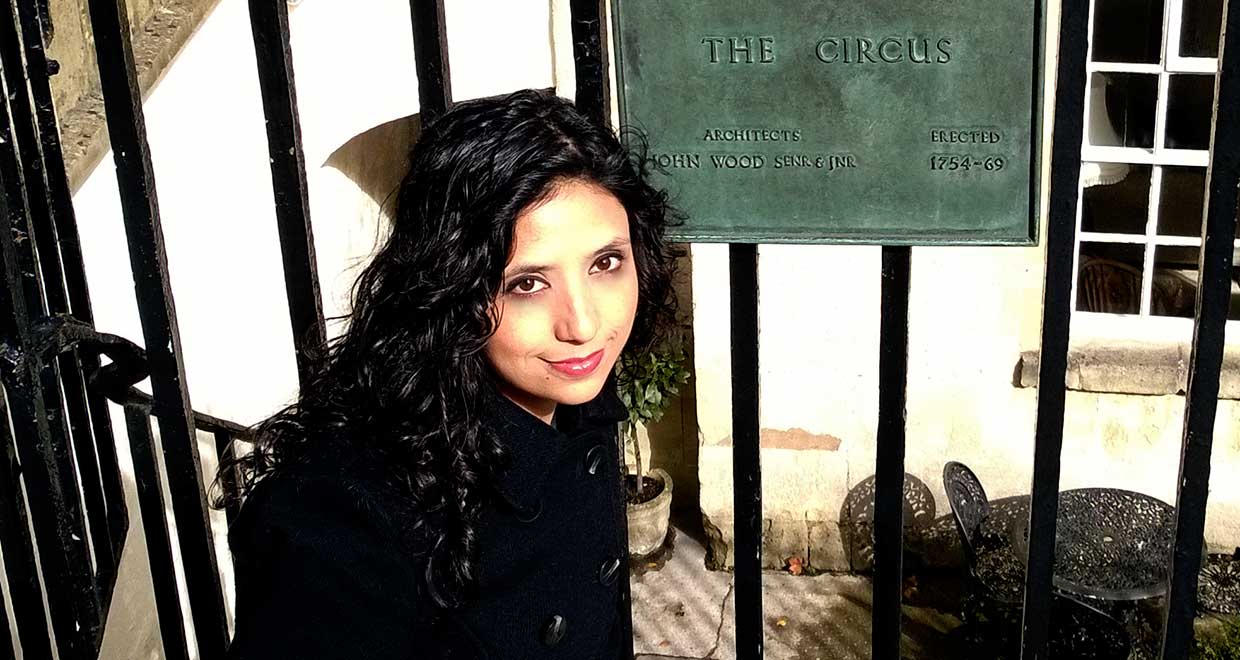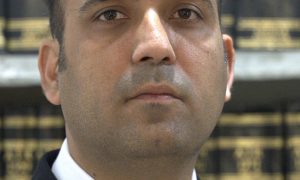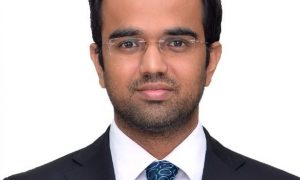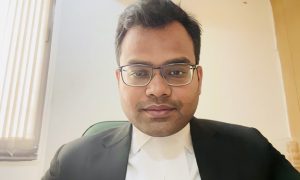Sneha Nainwal graduated from Symbiosis Law School in 2010. Soon after graduation, she went on to pursue BCL at University of Oxford. She has a very rich experience of working in India and United Kingdom. She then worked at LakshmiKumaran and Sridharan for about two years.
Being a tax specialist she also has a keen interest in opportunities involving commercial litigation and arbitration.
In this interview, she talks about:
- Law school experience at Symbiosis and University of Oxford
- Work experiences at LKS, SGH Martineau LLP,
- Experience as a Contract Attorney at Bird & Bird, Hausfeld and Pinsent Masons
- Work culture in India and the UK
How would you like to introduce yourself? Please tell us about your pre-college experience.
I am a dreamer by faith and lawyer by profession.
My brother and I had a fairly modern upbringing that offered a unique blend of traditional values and liberal outlook. My father is a judge and my mother is a home-maker. We were always encouraged to find our own inspiration in life and so we did. While I followed my father’s footsteps and joined the legal field, my brother is now a user interface designer with Facebook in California.
As part of our family tradition, I was sent to a boarding school in Nainital at a very young age. The 7 years spent at St. Mary’s Convent, one of India’s finest residential public schools, have had the greatest influence on my life. With its focus on an all-round education, character building and the belief that one’s competition is only with oneself, the years spent at Ramnee gave me the courage and integrity to be myself. My stay at Symbiosis Law School, on the other hand, gave me the opportunity to interact with fellow aspiring legal professionals and an inspiration to succeed. I made some great memories, and even better friends!
I read for the BCL at the University in Oxford in 2010-2011. I then worked at Lakshmikumaran & Sridharan, Attorneys in New Delhi for about 2 years. Pursuant to my appointment at SGH Martineau LLP, an international law firm in London, I moved to the UK in 2014 and am currently qualifying as a Solicitor in England & Wales. I reside in London with my husband, who works in investment banking.
When and how did you decide to study law? How did you settle for Symbiosis Law School?
With most of my family being reputed members of the legal fraternity, law has always had an impact on my life. My father has served the Indian Judiciary for over 25 years. The sight of those red and black books with their slightly musty smell in his library, his typewriter and his black gown always held a strange charm for me. I was an inquisitive child, easily dissatisfied with popular reason and superficial explanations.
At school, this nascent curiosity developed into a lively quest for academic research and love for debates. Being naturally good with numbers, I enjoyed subjects like maths and accountancy and took up the commerce stream for my ISC Levels. I came to realise that my skills were best suited for a career which demanded potential for research, logical aptitude and commercial acumen.
The choice was between business school and law school. It was then that my father told me about the dual program in business and law (B.B.A.LL.B), being one of a kind at the time, offered at Symbiosis. It was an ideal opportunity to pursue my interest in business and law simultaneously. I took the entrance exam and there has been no turning back.
When people say “Law school”, they look no further than the National Law Universities. As a graduate of Symbiosis, have you faced any such bias? What would you say to the future graduates of Symbiosis regarding this?
It depends on who your audience is. The university league tables and rankings have created a very competitive educational environment and it’s hard to avoid its impact on one’s academic experience. An element of prestige is definitely associated with leading institutions, be it the Ivy League, Red Brick Universities or some of our very own NLUs but it isn’t a prophecy of professional success. The two things that truly matter are – what your university has to offer and what you make of that.
Symbiosis offered me a rich gamut of opportunities, both academic and personal, and I plunged headlong into making the most of it. It was an intellectual adventure that I thoroughly enjoyed (and that’s not something you’ll hear a law graduate say often!). Those five years so moulded me that there was little room for any bias or prejudice and my career trajectory bears testimony to this fact. In addition to securing top internships and winning national moot competitions, I was offered a place at two of the most competitive law programs, BCL and MLF, at the University of Oxford and have since worked at leading national and international law firms. Similarly, my peers went on to do their LL.M at Harvard, Cambridge, NYU et al and are now working with leading law firms. The point I am trying to drive home is that meritocracy should not be underrated by us.
To the future graduates of Symbiosis – pride and prejudice are volatile social forces and often over-rated. Your biggest competition is yourself and it is only when you don’t realize your true potential that you fail. These five years could define you – make sure you choose the definition wisely.
Many lawyers say that the first year after graduation is the most difficult year for young lawyers. What was your experience? What were the biggest challenges you faced?
It was a very different experience for me as I went on to do my LL.M after graduation. For me, that one year was truly inspiring. The biggest challenge was of course the BCL! It was like an intellectual roller coaster, marked with alternating phases of ingenuity and despair, but nevertheless, exhilarating. I was thrilled to interact with some of the finest minds from across the globe, in a setting that presented a confluence of cultural diversity, and was thus, a privilege in its own right. That year taught me a lot about self-discipline, time management and social networking – skills that have greatly helped me on the professional front. The year was also very enriching in terms of my social experience – I was the International Student Representative for my college, I performed at the Oxford Playhouse in a student production by ‘Chutney and Chips’ and I also shared the screen with Akshay Kumar in a scene from the Bollywood movie ‘Desi Boys’ (it was shot at Oxford)! On the personal front, too, it was an exciting year as I met my husband, Simon, in Oxford. He is the Feinstein Scholar from the Department of Economic History and we studied together at St. Catz.
What prompted you to opt for BCL from University of Oxford soon after graduation? How difficult would you say it was gaining admission? What advice would you like to give about the application process?
My reasons for pursuing the LL.M were purely intellectual, which is why I started working on my applications in the penultimate year of law school. As my focus was more on common law centric courses, I was keen on pursuing my LL.M in the UK. I only applied to Oxford and Cambridge, as they were my dream institutions, and was offered a place on two graduate law programs at Oxford – BCL and MLF. My keener interest in the subjects of Restitution and Jurisprudence, which the Oxford Law Faculty enjoys an unrivalled reputation for, led me to choose the BCL over MLF.
The competition for any world class university is naturally fierce. The selection panels are keen to identify well rounded individuals demonstrating a balanced set of academic and extra-curricular accomplishments. While strong academic credentials are vital, a sustained participation in other co-curricular activities significantly enhances the merit your application. Personally, I see my admission into Oxford as a culmination of all past achievements throughout my academic career. Over the years, I had actively participated in internship programs, moots, sports, debates, dramatics, and pro-bono activities and every single stint was a building block in shaping my application. Having said that, I must also stress the importance of a compelling SOP. Yes, SOPs are read and taken very seriously (while being offered a place on the MLF at Oxford, I was personally told that the admissions committee was specifically impressed with my SOP). It had taken me over a month to finalise that SOP, which was proofread by all my friends and edited with painstaking attention to detail by my elder brother (in whose literary skills I have immense faith!). My recommendation letters, two academic and one professional, came from professors and a senior judge who knew me well to give a detailed and personalised account of my skills, accomplishments and personality. I must add here that the faculty at Symbiosis, particularly our then Vice Principal – Dr C.J. Rawandale, was extremely helpful throughout the process. I also submitted a written piece of work. The entire application process is quite time consuming so it is advisable to start well in advance and follow a methodical approach.
Did you apply for any scholarships? How was the academic culture at Oxford?
I was shortlisted for the Rhodes Scholarship but did not win it. The BCL at Oxford is popularly known as the academic Everest and rightly so, for it is by far, one of the most gruelling law programs in the world. The rigour of the course may vary, to some extent, with the combination of subjects. For instance, subjects like Jurisprudence, Restitution, Conflicts, Corporate Insolvency and Evidence, amongst others, are considered to be more voluminous and exacting, but if they float your boat, then Oxford is the best place to study them. I studied restitution and loved it! What is unique about the academic environment at Oxford is that it celebrates independent thought and intellectual freedom – it makes you think! You start to look beyond the letter of the law to conceptualize ideas, challenge legal philosophy and interpret case laws in ways that you would otherwise think were not even possible. The traditional Oxford tutorials, which are not common to other graduate law programs, are an excellent opportunity to have one on one academic interaction with the faculty. Needless to say, the library resources and facilities are world class. Oxford is the city of modest geniuses and a great place to be inspired!
After finishing your BCL you started work at LakshmiKumaran and Sridharan. What prompted you to join LKS? Please tell us about your days at LKS.
I completed an internship program with LKS in the final year of law school and was offered a pre-placement offer, which I had to defer to take my place on the BCL. On my return from Oxford, I joined LKS as an Associate at their Delhi office. My reasons for joining LKS were twofold – its unrivalled reputation in tax and the work environment. In my opinion, tax is the most dynamic, multi-faceted and exciting field of law. Personally, it offers a unique opportunity to combine my core strengths in the fields of maths and accountancy with my aptitude for legal analysis in a commercial setting. I was keen on tax specialisation and LKS, with its proven expertise, was the best place to do it. LKS also has an impressive work environment, where it offers every advantage of a big firm, yet retains an originality and personal touch that is often lost in the rigid corporate culture of its other competitors. I found that very refreshing.
My stay at LKS was personally enriching and professionally gratifying. I started out in the Indirect Tax Litigation team where I mainly dealt with excise duty matters. There was ample opportunity to take true ownership over my work under the guidance of experienced seniors. I drafted replies to show cause notices, filed appeals before higher forums and argued matters before the commissioners and tax tribunals (CESTAT). I also advised clients on tax benefits and exemption issues. I was very fortunate to work directly with the partners on some very high profile matters, particularly the excise duty demand against Cadbury India. In my second year, I was promoted to the position of Senior Associate and was also appointed as the Officer on Special Duty reporting directly to the Senior Partner. The new position offered exposure to a wider range of matters including VAT, Service Tax, Sales Tax and Income Tax. LKS will always be a very significant chapter in my career history, where I met some inspiring lawyers and made great friends.
What led to your decision to leave LKS and move to the UK to join SGH Martineau LLP? How was the selection process? Please tell us about the conversion course and funding options.
My decision to move abroad was inspired by my desire to work in an international environment and my growing interest in the field of international taxation. My love for England, however, can be traced to the influential works of Jane Austen, and my husband, Simon Holmes.
I was looking for an international law firm that could offer early responsibility, good exposure and accelerated career development. SGH Martineau LLP was then in its post-merger phase and looking to recruit two trainees for its London office. It was a good time to join in and participate in the high-paced growth and strategic expansion of the Firm. There is something inherently rewarding about working at a firm that is in such an exciting phase of its growth. As there were only two positions available, the level of competition was very high. I made an online application and was invited to attend an assessment day, followed by a partner interview, in London. After being offered and signing the training contract, I then secured a partial exemption from SRA (Solicitors Regulation Authority) in respect of the GDL/LPC (the conversion course). I was required to submit elaborate documentation in support of my undergraduate studies but once again, the faculty at Symbiosis was extremely supportive. I am currently enrolled at University of Law where I am completing the remaining modules on the conversion course. As for the funding, most training contract offers include sponsorship for GDL and LPC.
The training providers, too, offer scholarships and bursaries of their own. I won the Law First Scholarship in 2014, which is a merit based funding for postgraduate students at University of Law. I also have a sponsorship from SGH Martineau.
You have recently worked with Bird & Bird LLP, Hausfeld and Co. and Pinsent Masons LLP as Contract Attorney – how was that experience? How this stint proved to be helpful here? What were the events that led to your induction? Were there any interviews or selection processes?
As I hold a partial exemption from the conversion course, I have been working as a Contract Attorney alongside my studies. I have completed projects at Bird & Bird LLP, Hausfeld & Co. and Pinsent Masons LLP. The work portfolio has been pretty diverse, ranging from cartel pricing cases to financial fraud investigations. It has been a good opportunity to work alongside foreign lawyers and experience the work culture at different law firms. These projects are lucrative, flexible and a great platform for professional networking. Applications can be made either directly or through placement agencies. The selection process varies with the firm in question and may include an assessment day or interview. All of my placements were finalised by my agents and did not involve any interview. I was selected on the basis of my CV and previous work experience.
Tell us a bit about work culture at law firms in the United Kingdom. How is it different from the Indian LLPs?
The work culture would vary depending on where you are working. However, there are some general points of difference. There is a clearer distinction and finer balance between professional and personal lives. Punctuality is taken more seriously and workdays usually start early and end early. Working on weekends, if at all, is a rare exception. The interaction with seniors is less formal. The relationship with colleagues is less personal. There is greater global diversity.
How difficult was it for you, as a lawyer who had theretofore been used to the Indian legal system, to adjust to the environment of a foreign work place?
It has been a very refreshing change for me. The conversion course has been an excellent opportunity to solidify my theoretical knowledge of English Laws, which has translated well to practice and made the transition rather smooth. The short term projects have provided a real insight into the work culture and practice areas at different law firms. As for my Indian experience, it offers a natural advantage in terms of domestic expertise while working on cross-jurisdictional matters that involve Indian laws. I am still getting used to the differences in procedural laws, legal jargon and even the general work culture but so far, it has been rather exciting than overwhelming.
Can you give us advice on applications and interviews, especially with foreign law firm?
“Give me six hours to chop down a tree, and I will spend the first four sharpening the axe” – Abraham Lincoln
The key to success is preparation. It is always a good idea to do a fair bit of research on the Firm that you are applying to – its background, operational structure, work ethos, practice areas and recent deals. This will make your application less generic and highlight your interest in the Firm. Know your resume inside out and be prepared to explain/defend it. The recruitment process typically involves preliminary stages such as online psychometric tests, assessment centre and written tasks. A lot of information, useful tips and sample exercises are available online so use that to your advantage. Research your interviewer well, where possible, and ask intelligent questions. Competency based interviews are extremely popular in the UK so identify the core competencies for the role that concerns you and practice answering behavioural questions. I cannot stress enough how important this is! And now for every recruiter’s favourite buzzword – ‘commercial awareness’! Most law firms will test you for this competency at one stage or another – make sure that you are prepared to deal with it.
Lastly, what would be your parting message for our readers?
Follow your heart, not the conventions.

























